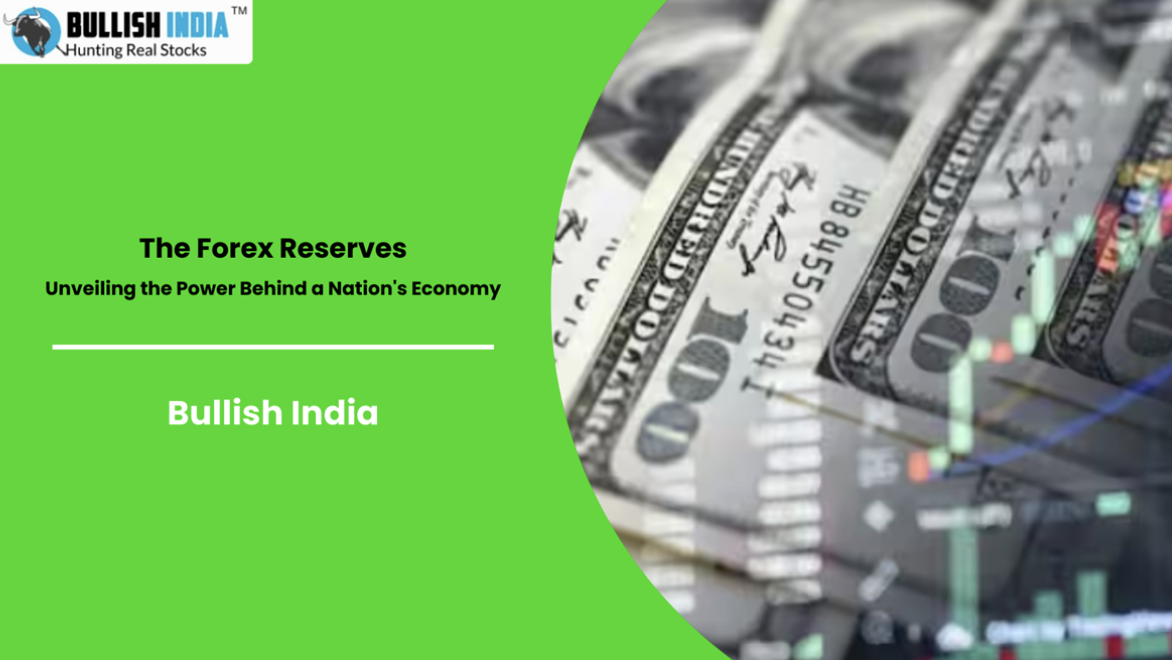The Forex Reserves Chronicle: Unveiling the Power Behind a Nation’s Economy

Welcome to our Newsletter! Your gateway to unraveling the significance of foreign exchange reserves and their pivotal role in shaping a country’s economic progress.
Demystifying Forex Reserves
What Are Forex Reserves?
Foreign exchange reserves, commonly referred to as forex reserves, represent the foreign currencies, gold, and other valuable assets that a country’s central bank has in its possession. These reserves play a crucial role in providing a financial cushion to support economic stability during periods of economic turbulence.
Last week, India’s foreign exchange reserves rose by $2.759 billion to $623.200 billion in the week ended December 29, according to the latest Reserve Bank of India (RBI) figures released on Friday. So let’s explore how it is calculated.
Calculating Forex Reserves
Forex reserves include various assets:
- Foreign Currencies: Holdings of other countries’ currencies, like US Dollars, Euros, and Japanese Yen. etc.
- Gold Reserves: Physical gold held for its intrinsic value and as a hedge against currency fluctuations.
- Special Drawing Rights (SDRs): An international reserve asset created by the International Monetary Fund (IMF).
- Reserve Position in the IMF: A country’s financial claim within the International Monetary Fund (IMF).
Duration of Calculation
Central banks constantly observe and adjust their foreign exchange reserves in order to effectively respond to evolving economic circumstances and global trade dynamics. The frequency at which these calculations are made is determined by the level of market instability and policy considerations.
Factors Influencing Increase and Decrease
Forex reserves can increase due to:
- Trade Surpluses: When a country exports more than it imports, it accumulates foreign currency earnings.
- Capital Inflows: Foreign investments, loans, and remittances contribute to reserves.
- Borrowing: Governments and central banks can borrow foreign currency to boost reserves.
Reserves can decrease due to:
- Trade Deficits: Heavy imports and low exports can deplete reserves.
- Capital Outflows: Sudden withdrawals of foreign investments or loans reduce reserves.
- Currency Interventions: Central banks may use reserves to stabilize their currency’s value.
The Crucial Role of Forex Reserves in the Economy
- Economic Stability: – During times of economic turmoil, having a solid stash of foreign currency reserves acts as a crucial safety net. Not only do these reserves help stabilize a nation’s currency value, but they also ensure smooth international trade and safeguard against a drop in currency worth.
- Monetary Policy: – By maintaining reserves, central banks are empowered to effectively manage the value of their currency. Strategic interventions in the forex market not only aid in controlling inflation but also bolster investor assurance and sustain a competitive edge in global trade.
- External Debt Management: – Having sufficient reserves serves as a buffer for paying off foreign debts, guaranteeing a nation’s credibility, and decreasing reliance on loans from external sources.
- Crisis Management: – In times of financial turmoil, reserves play a crucial role in reinstating market trust, maintaining stable exchange rates, and safeguarding against the outflow of capital.
- Boosting Investment: – Healthy forex reserves signal a country’s economic strength, attracting foreign investors and fostering economic growth.
In Conclusion
Surplus foreign currency reserves are crucial for a country’s financial security and ability to withstand economic challenges. Understanding how they are calculated, maintained, and influenced fiscal decisions highlights their significant role. Stay tuned for more insights!
Check out Bullish India smallcases
Liked this story and want to continue receiving interesting content? Watchlist Bullish India’s smallcases to receive exclusive and curated stories!
Disclaimer: This newsletter is for informational purposes only and should not be considered investment advice. Please consult with a financial advisor before making any investment decisions.
Investments in securities market are subject to market risks. Read all the related documents carefully before investing. Registration granted by SEBI, membership of BASL (in case of IAs) and certification from NISM in no way guarantee performance of the intermediary or provide any assurance of returns to investors


























































